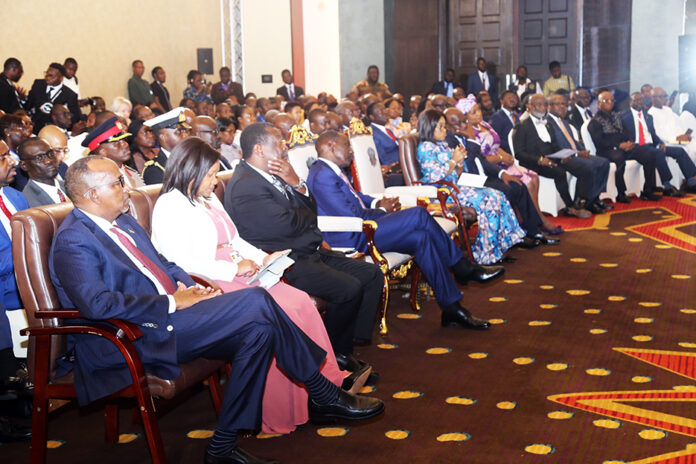Business communities in Ghana and Kenya have appealed to their respective governments to consider procuring vessels to aid intra-countries trade.
The Ghana Chamber of Commerce and the Kenyan Association of Manufacturers were in sync on this advocacy, at a business forum for Ghana and Kenya held in Accra on Wednesday, April 3, 2024.
The two associations highlighted the bottlenecks, including costs and delays in transporting goods from Kenya to Ghana, and vice versa. They also lamented that such hurdles could defeat the essence of the African Continental Free Trade Area (AfCFTA).
The President of the Ghana Chamber of Commerce, Clement Osei Amoako, was explicit in his plea for both governments’ intervention to procure or assist the private sector to purchase a vessel for intra-African trade.
“To summarise everything, one other thing we discussed [in the business forum] has to do with the vessels that have to run around to send goods from one country to another. I will plead that the two countries will lead either by getting some form of money into their budgets or by supporting the private sector with guarantees, to be able to buy vessels and partner colleagues to lead the AfCFTA.
“Otherwise, every goods that we have to export using vessels will have to go through Europe and come back. And that will be a bad thing for our countries,” he remarked.
On his part, the President of the Keyan Association of Manufacturers, Anthony Mwangi, rehashed the call by his Ghanaian counterpart, adding that intra-Africa trade remains low at 14%.
He blamed the low level of trade among African countries on issues of transportation and others, while supporting the advocacy for an African-owned vessel to aid exports and imports in Africa.
He said that, “we must establish our own mechanism to deal with what we call physical barriers. It takes four months for a container from Kenya to arrive on the coast of Ghana, because it has to go through several bottlenecks.
“As we sit here today, I think one of the good points that we have is to have our own vessels that plies South to West, from Mombasa to Durban, to the coast of Ghana and Nigeria. That, I think, is what will see us doing the intra-Africa trade,” he added.
STATISTICS
The European Union has 27 member countries and 75% of the collective GDP of the EU is generated by intra-EU trade.
On the other hand, the 54 members of the African Union generate only 14% of their collective GDP from intra-African trade.
PRIVATE SECTOR
It was the hope of President Akufo-Addo that by a decade’s time when the business community looks back, the figure would have increased and possibly more than doubled.
He urged the business community to take advantage of the policies offered by the AfCFTA to improve intra-African trade by about 20% or more in the near future.
President Akufo-Addo remarked that politicians and governments would formulate policies, but the readiness of the private sector to take advantage of such policies is the force behind developing the continent.
“We, the politicians, can do our best to provide the framework. We were lucky to have a generation of African leaders who saw the importance of coming together to form the AFCFTA and brought it into being after years of discussions.
“But at the end of the day, if the agreement is to live, it is because the business communities of our continent will see the opportunities that there are in the AfCFTA to build businesses, to trade across and within countries and, therefore, help develop our continent. I have a question for you. Are you ready for this task?” a question the business community that attended the summit responded in the affirmative.
KENYA
The President of Kenya reiterated a point his colleague made about the nexus between technology and digitization to diversify and develop economies on the continent.
He mentioned that public financial transactions in his country, Kenya, are leveraging technology and digitization, removing the physical exchange of public funds.
According to him, almost all government services including our capital markets, today run on technology and digital space. People can buy and sell shares in capital markets on digital platforms. You do not have to go physically to the capital markets. Today, we are deploying government services on our digital platforms.









